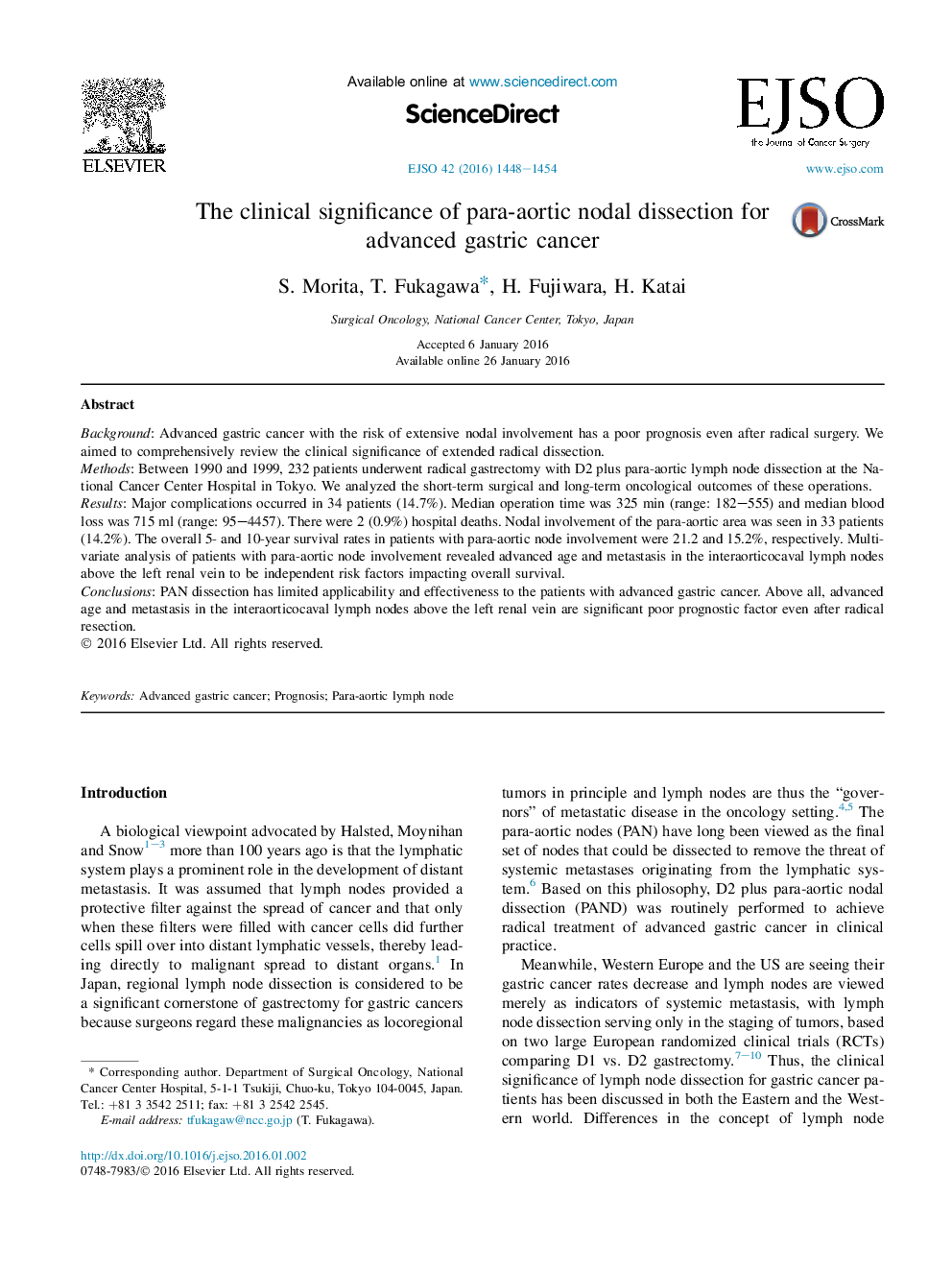| Article ID | Journal | Published Year | Pages | File Type |
|---|---|---|---|---|
| 3984453 | European Journal of Surgical Oncology (EJSO) | 2016 | 7 Pages |
BackgroundAdvanced gastric cancer with the risk of extensive nodal involvement has a poor prognosis even after radical surgery. We aimed to comprehensively review the clinical significance of extended radical dissection.MethodsBetween 1990 and 1999, 232 patients underwent radical gastrectomy with D2 plus para-aortic lymph node dissection at the National Cancer Center Hospital in Tokyo. We analyzed the short-term surgical and long-term oncological outcomes of these operations.ResultsMajor complications occurred in 34 patients (14.7%). Median operation time was 325 min (range: 182–555) and median blood loss was 715 ml (range: 95–4457). There were 2 (0.9%) hospital deaths. Nodal involvement of the para-aortic area was seen in 33 patients (14.2%). The overall 5- and 10-year survival rates in patients with para-aortic node involvement were 21.2 and 15.2%, respectively. Multivariate analysis of patients with para-aortic node involvement revealed advanced age and metastasis in the interaorticocaval lymph nodes above the left renal vein to be independent risk factors impacting overall survival.ConclusionsPAN dissection has limited applicability and effectiveness to the patients with advanced gastric cancer. Above all, advanced age and metastasis in the interaorticocaval lymph nodes above the left renal vein are significant poor prognostic factor even after radical resection.
